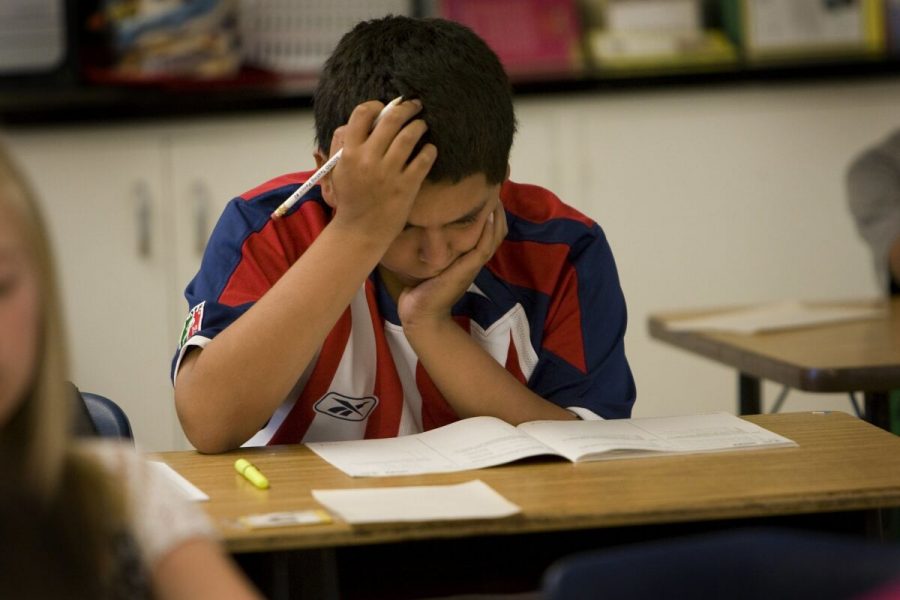Report cards reflect impact of COVID-19 pandemic on student education
November 10, 2022
Following the COVID-19 pandemic, many of the educational practices have massively shifted; as a result hygiene protocols and sanitization were put into place. However, not all the changes are positive, the “Nation’s report card” alerts an alarming data poll of the difference in childrens’ grades.
“If this is not a wake-up call for us to double down our efforts and improve education, even before it was – before the pandemic, then I don’t know what will,” US Secretary of Education Miguel Cardona said.
Schools are supposedly using the funding from the relief package during 2021 to maximize the improvement of education. Large urban districts showed notable improvement in reading and math grades. The students who were around the end of middle school and beginning of high school showed considerate drops in scores.
“Eighth grade is that gateway to more advanced mathematical course taking,” The Center’s Commision, Peggy Carr told reporters. “This is what these students are missing. They’re missing important skills that will prepare them eventually for (science, technology, engineering and math) level careers.”
The report card shows the average math score of 236 for the fourth grade was five points lower than in 2019, and eight points below the 2019 mark of 274 for the eighth grade. The reading score of 217 for the fourth grade was down three points this year – the same decline as the eighth grade score of 260 – compared to 2019.

The impact was not equally spread through students; there were noticeable gaps between racial and ethnic groups. The difference between White, Hispanic, and Black students’ grades are the highest in three years. Hispanic and Black students seem to be declining at a larger rate than neighboring groups. Lower performing students are dropping in grades at an even higher rate, but even the middle to higher performing students all have a negative factor in their scores.
“This must be a wake-up call for the country that we have to make education a priority,” Beverly Perdue, former governor of North Carolina and chair of the National Assessment Governing Board said.







